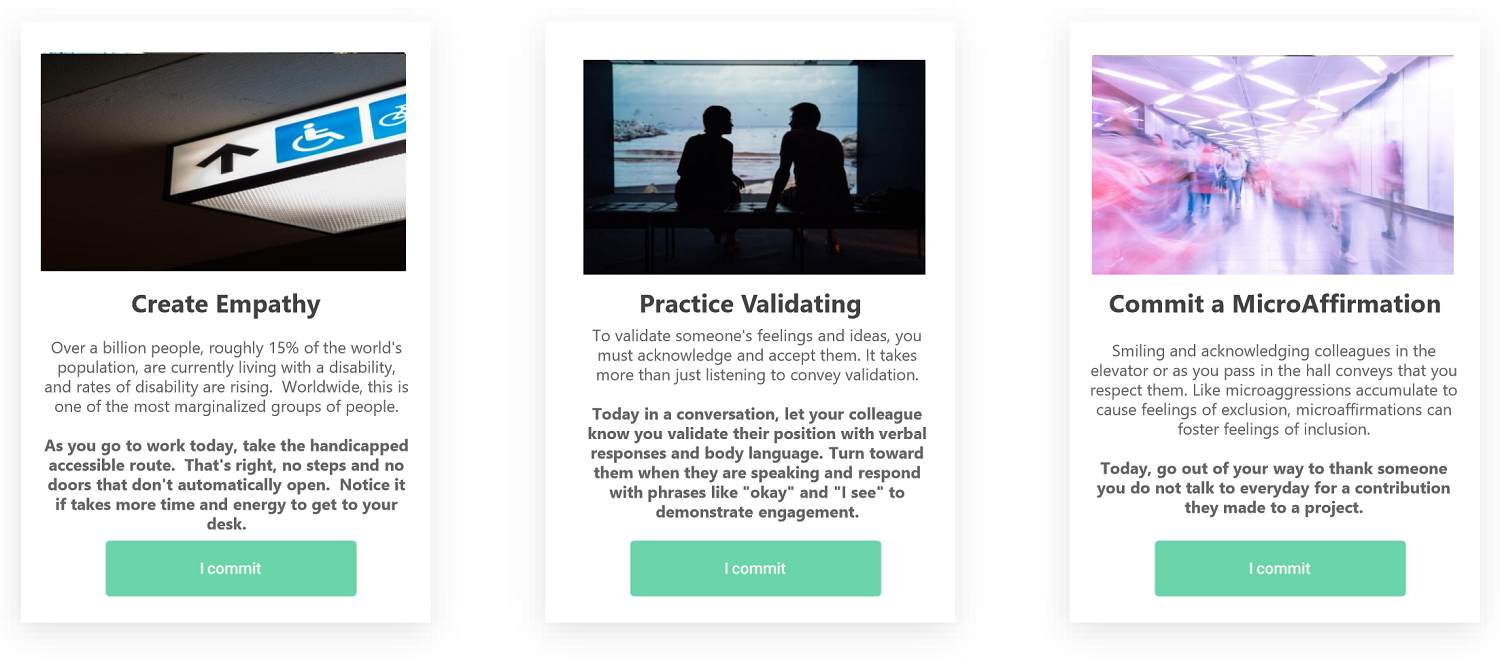Below is our recent interview with Dr. Amanda Felkey, Behavioral Economist:

Q: Why Diversity, Equity and Inclusion efforts are important for companies?
A: Diversity among workers brings a wider array of ideas to any problem-solving table which in an inclusive environment will foster the creativity and collaboration of ideas necessary for developing new and innovative solutions.
Research indicates that more diverse companies outperform those with a relatively homogenous workforce: diverse teams perform 35% better than non-diverse teams, bilingual employees produce 10% more revenue than employees speaking only one language, teams with gender equality earn 41% more revenue (ClearCompany.com), and diverse companies report capturing new markets 70% more often (Hewlett, Marshall and Sherbin, 2013).
I put together a simple regression analysis to isolate the effect prioritizing DEI has on company performance. Among Fortune 500 companies, publicly valuing DEI is on average associated with $3.79 billion more profit and on average $16.48 billion higher revenue than those companies leaving diversity off their list of values.
Q: What are companies currently doing? Is it working?
A: The Society of Human Resource Management reports that diversity department budgets among companies in the Fortune 1000 range from $30K to $5.1M, with an average of $1.5M annually and more than $8B is annually spent on DEI efforts in the US.
Most companies spend this money on workshops and training programs. Because we forget almost 97% of what we learn within a week, this format is limited in effect. DEI leaders report having “hit a wall with programming” and are concerned that DEI training leaves their employees in a “scary space”.
Q: What can be done to support DEI programming and propel DEI efforts forward?
A: Research shows that we do not forget as much of what we learn if we apply or reinforce those messages at regular intervals. Conscious effort can mitigate forgetting. This is why I developed The Inclusion Habit, a program designed to help individuals make their behaviors more inclusive by (1) embracing the idea that inclusion matters, (2) understanding biases and their sources, (3) dispersing the negativity associated with unconscious biases, (4) practicing thinking more deliberately, (5) reprogramming incorrect intuitions about others, and (6) becoming more empathetic.
If companies want to sustain the benefits they create with DEI workshops or trainings, they need to provide their workforce with a behavior change resources to complement their programming efforts. The Inclusion Habit will not only keep employees from forgetting what they have learned, it also gives employees a workflow for becoming more inclusive.
Q: Can we leverage technology to amplify DEI efforts?
A: Absolutely. Technology can help provide daily reinforcement and support inclusive behavior change. Technology even has the capability of making this daily reinforcement a more individualized experience. With meaningful action and application of DEI principles, technology can catapult programming efforts to the next frontier.
One technology particularly well suited to support DEI programming for leadership development. The platform’s human-centered design is based on the most recent behavioral science evidence. The platform uses commitment devices, social accountability and gamification to encourage individuals to act more inclusively. ProHabits has a social element that creates communities around inclusion, leveraging the fact that change embedded in social groups is much easier. Finally, sending messages from The Inclusion Habit via ProHabits prime thinking to be more inclusive.
Here are some examples of the small tasks from The Inclusion Habit that you can deliver to your workforce with ProHabits:




 Recommended:
Recommended: 